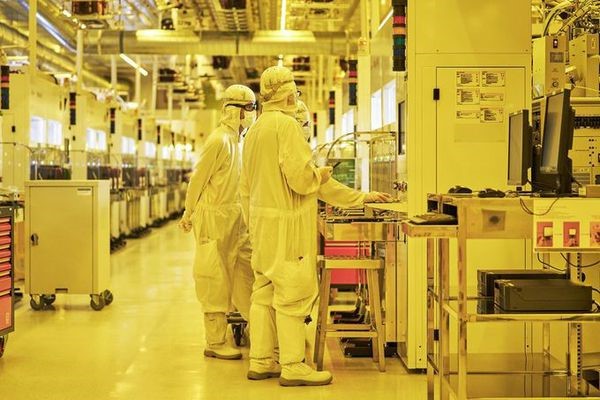Chaudhary Group (headquartered in Nepal) - specializing in the production of products such as noodles, snacks and beverages to more than 35 countries - is expanding in Egypt. The company wants to produce noodles for the African market, while also keeping an eye on opportunities in Latin America. The new factory will produce 1 million packages of noodles a day, employ 500 people, and need $10 million to develop.

"We want to be a global noodle company," GP Sah, FMCG's global sales manager, said in an interview.
Walmart Inc. in February said it would invest about $14 billion in 2021 in areas including supply chain, automation and technology. Last year, the company's investment spending was 10.3 billion USD.
In the US, investment spending on equipment, architecture, and software reached an annual average of 13.4% through the second quarter, the strongest pace since 1984. Investment in equipment alone averaged 14.4% over the past year, more than double the 2009-2019 average.
Europe has a similar situation. S&P Global Ratings predicts a 16.6% increase in investment growth in 2021 – the best gain since 2006. Business investment in the UK, which was stifled by the country's departure from the European Union, has also picked up. has begun to recover, but is still 15% below pre-pandemic levels at the end of the second quarter.
According to S&P Global Ratings, the capex - cost of capital or fixed asset cost - of businesses globally will increase 13% this year in all regions and industry groups, especially semiconductor group. , retail, software and transportation. Economists at Morgan Stanley forecast that global investment will hit 115% and 121% respectively of pre-recession levels in late 2021 and late 2022. Compared to previous recessions, the recovery has been swift. more.
The reason for this increase in investment comes from both the supply and demand sides. Accordingly, on the supply side, the congestion caused by Covid-19 is forcing businesses to increase investment in new production facilities.
Rob Subbaraman, head of global market research at Nomura Holdings Inc. assessed, the recovery in business investment is important to long-term growth. Because, capital accumulation is the key to improving productivity.
"Once the global stimulus fades, the world needs business investment and structural reforms to sustain growth," he said.
With inflation rising, supply chains continuing to be chaotic... an increase in investment offers a rare glimmer of hope for the global economy in 2022 and beyond. This is also a very different dynamic from the global crisis of 2008 when austerity and poor investment dragged jobs and wages down for years to come.
Next, the global semiconductor crisis was also the driving force behind the investment wave. Working from home and the rise of the digital economy have fueled demand for semiconductors, creating shortages and reshaping investment in the sector. South Korea is planning to spend about $450 billion, led by Samsung Electronics Co. and SK Hynix Inc. led, aiming to build the world's largest chip factory in the next decade. Similarly, Japanese enterprises have also stepped up investment facilities for chip production. The pandemic has brought many risks that make them think it is necessary to disperse production facilities.
Another driver on the supply side is climate change, forcing companies to retool equipment as governments push through clean energy policy. Data from BloombergNEF shows that a record $174 billion was invested in solar, offshore wind and other green technologies in the first half of 2021 to limit carbon emissions.
On the demand side, consumer spending is being compressed, which is convincing business operators to step up investment. This is a sign that businesses are expecting an economic recovery even if the Delta variant overshadows. In addition, they also bet on the low interest rates will be maintained.
However, many are also concerned that capital spending will lose momentum as consumer demand cools or shortages of goods will turn to surplus when Covid-19 passes. Economists also assess, some investments may not bring the expected results. Now, though, companies are betting that they have more to lose if they don't invest in upgrades.
According to Bloomberg

